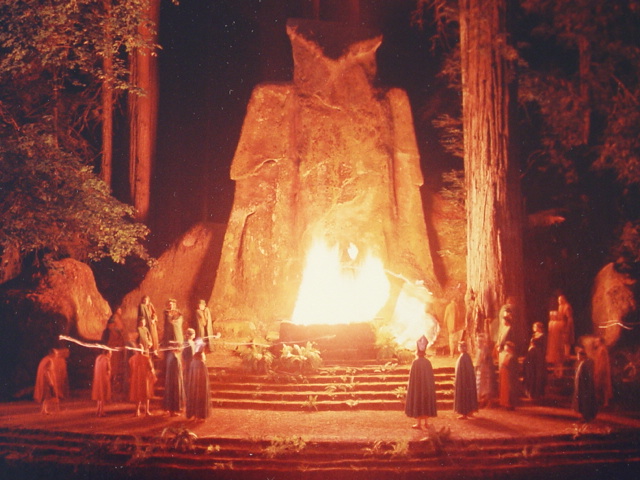Ok, first things first: overall, no, it's not as good as season one.
Now we've settled that, we can assess it on its own merits (and failures).
Set in California, the story follows four central characters: three cops and a gangster aspiring to be a businessman. A corrupt politician, who the gangster, Frank (Vince Vaughn), is working with to buy land that is going to sky-rocket in value due to a new travel infrastructure development, is tortured and murdered. His death is used as an excuse to send two cops from outside the area, the City of Vinci, to investigate the rumoured massive corruption in that city's police force and government; thus two cops, Ani Bezzerides (Rachel McAdams) and Paul Woodrugh (Taylor Kitsch), are deployed to officially work the case of the murder while unofficially being on a dirt digging mission. Ani works with the corrupt detective Ray Velcoro (Colin Farrell), who has secretly been working with Frank for years, while Paul...smoulders with intensity a lot.
Are you with me so far?
Now, you might say that 'Well, that doesn't sound too complicated.' On the face of it, no. But, the story becomes increasingly difficult to follow as we join the characters descent into tighter and deeper and darker spirals of corruption. Frankly, the plot becomes virtually Byzantine, throwing off tendrils into the self-help craze of the 80s, rumours of the goings on at Bohemian Grove, as well as investigating the sheer corrosiveness of greed and power.
Further, four main characters was simply one too many. What's more, it's obvious who should have been cut: Paul. Now, I want to say that there was nothing wrong with the character as such, although he didn't get much development and I can't actually think of much to say about him except 'conflicted closeted gay man', and there was nothing wrong with Kitsch's performance. The problem was that the character, though compelling in his own right, added very, very little to the story. Indeed, the story could have carried on without him with only minimal tweaking, freeing up screen time to elucidate the very opaque plot.
In many ways, it felt like I was watching a first draft. There was great potential, but it desperately needed some tidying up. Indeed, HBO's Director of Programming has taken the blame for rushing the writer. If it there had been more focus, more direction, and some pretty brutal editing, it would have been far better than it was.
However, that's not to say that we didn't end up with something that was quite brilliant in its own right.
Now, although the story was very difficult to follow, if you try hard enough, you can make sense of it, and although it is unnecessarily convoluted, it still had me interested enough to follow it through to the end. And the pay-off was actually quite well executed. They'd wisely killed Paul off in the penultimate episode so we could focus on the genuinely very cool characters of Ray, Ani and Frank. What's more, it goes into some really interesting areas. Although there's not much focus on these aspects of the story, it was still pleasing to see something talking about the excesses and plain weirdness of the self-actualisation, alternative mental health brigade. There's the darkness surrounding 'men of influence' and what they do behind closed doors, too. A key thread throughout is the 'exclusive' parties where politicians, police and businessmen alike gather for sybaritic shenanigans galore, going from the plain old debauched to the murderous. This is, in my opinion, an obvious allusion to the Bohemian Club, an elite men's only club which has been dodging rumours of everything from being a glorified college fraternity to practising Pagan rituals for decades.
 |
| It's definitely not weird that we do this! |
The music and cinematography are as strong as anything season one produced. The image of California it creates is not one of glamour and beauty but seediness and waste. The camera lovingly pans over industrial parks, deserts, waste lands and poisoned soil, the music raising these scenes into art in their own right. The title sequence is certainly at least as good as one's.
Speaking of which: Vince Vaughn is brilliant in this. He plays Frank with a curious mixture of strength and sensitivity, as someone who is desperately trying to escape from his past into the legitimacy of 'real' business. Easily one of the key presences in the series, a thoughtful and intriguing character handled very well. However, it is Colin Farrell who really stands out as the tortured, crumbling ruin that is Ray Velcoro, a cop who is increasingly finding himself with little to live for.
Velcoro is a man whose life has been on a downwards incline for years. About ten years before the events of the show, his wife was sexually assaulted, and the name of the man who was responsible given to him by Frank. This decision, this giving in (one might say), is the point of no return. His wife divorces him in disgust for killing the man supposedly responsible for her rape, and is threatening to cut off all contact between him and his son (who may not even be his anyway) due to Ray's ultimately poisonous aura. He sinks further into a substance abuse, working closer and closer with Frank in a relationship that is oddly co-dependent. It's worth watching just for him.
Overall, this is something worth seeing, but don't expect to see season one again. Pizzolatto has demonstrated his boldness and daring as a writer by shying away from emulation, and like I've said already, if he had just been given more time one feels that this would really, really stand out as a modern classic of crime drama. Sadly, that was not quite to be.
A flawed masterpiece, to be sure, but worth your time all the same.